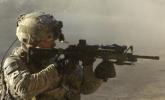Summer Operations Northwest of Baghdad: Denying Sanctuary to Al-Qaeda in Iraq
December 11, 2007 - Institute for the Study of War
Summary

Summary

The New York Times reports today that senior officials within the Obama administration are pressing for an accelerated withdrawal of forces from Afghanistan.

USMC General Joe Dunford appeared before the Senate Armed Services Committee today to be confirmed as the next Commander of the International Security Assistance Force in Afghanistan.
Enemy networks including both al-Qaeda-Iraq and Shi’a militias have been degraded by Iraqi and U.S. operations; however, extremists continue to seek to destabilize the country.

The Institute for the Study of War (ISW) welcomes robust and rigorous debate on the issues ISW covers and is especially grateful for the interaction with and feedback from those who engage seriously with the methodological challenges of performing intelligence from publicly available information. ISW’s entire team shares a passion for sound tradecraft and a desire to engage openly regarding our methodology, including both our analytic and forecasting successes as well as our limitations. We seek to raise the general level of discussion of national security and especially military issues and are grateful for the aid of all who contribute to that effort. This post outlines a few key takeaways regarding ISW’s approach can help inform readers about ISW’s work and establish constructive topics for engagement:

The exhaustion of US-provided air defenses resulting from delays in the resumption of US military aid to Ukraine combined with improvements in Russian strike tactics have led to the increasing effectiveness of Russian missile and drone strike strikes against Ukraine without a dramatic increase in the size or frequency of such strikes.

Russian President Vladimir Putin did not threaten an immediate nuclear attack to halt the Ukrainian counteroffensives into Russian-occupied Ukraine during his speech announcing Russia’s illegal annexation of Ukrainian territory. Putin announced Russia’s illegal annexation of Ukraine’s Donetsk, Luhansk, Kherson, and Zaporizhia oblasts on September 30 even as Ukrainian forces encircled Russian troops in the key city of Lyman, Luhansk Oblast, immediately demonstrating that Russia will struggle to hold the territory it claims to have annexed. Putin likely intends annexation to freeze the war along the current frontlines and allow time for Russian mobilization to reconstitute Russian forces. The annexation of parts of four Ukrainian oblasts does not signify that Putin has abandoned his stated objective of destroying the Ukrainian state for a lesser goal. As ISW assessed in May, if Putin’s annexation of occupied Ukraine stabilizes the conflict along new front lines, “the Kremlin could reconstitute its forces and renew its invasion of Ukraine in the coming years, this time from a position of greater strength and territorial advantage.”

Iranian-backed Special Groups in Iraq launched an offensive that cost them Basra and Sadr City but have regenerated in order to disrupt the Iraqi government with assassinations and spectacular attacks

To see this map in context, please view Iraq Report #11

Ukrainian forces have conducted a campaign of strikes against Russian military infrastructure, headquarters, and logistics routes in Crimea since June 2023 in order to degrade the Russian military’s ability to use Crimea as a staging and rear area for Russian defensive operations in southern Ukraine. Ukrainian strikes on logistics routes are disrupting Russian supplies to Kherson and Zaporizhia Oblast. Strikes on Black Sea Fleet assets are degrading its role as a combined arms headquarters but have not defeated it as a naval force. Ukrainian strikes generate outsized morale shocks among Russian commanders and in the Russian information space. Western provision of long-range missiles to Ukraine would amplify this ongoing, essential, and timely campaign to weaken Russia’s ability to defend southern Ukraine.